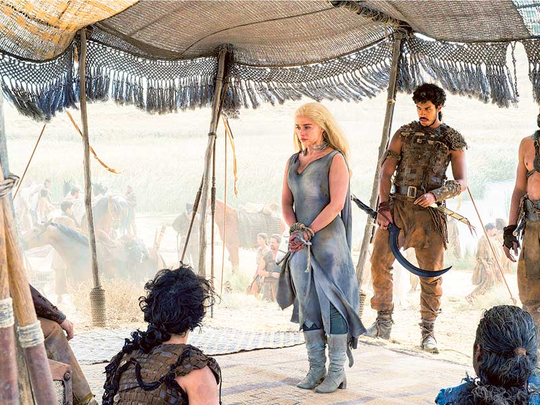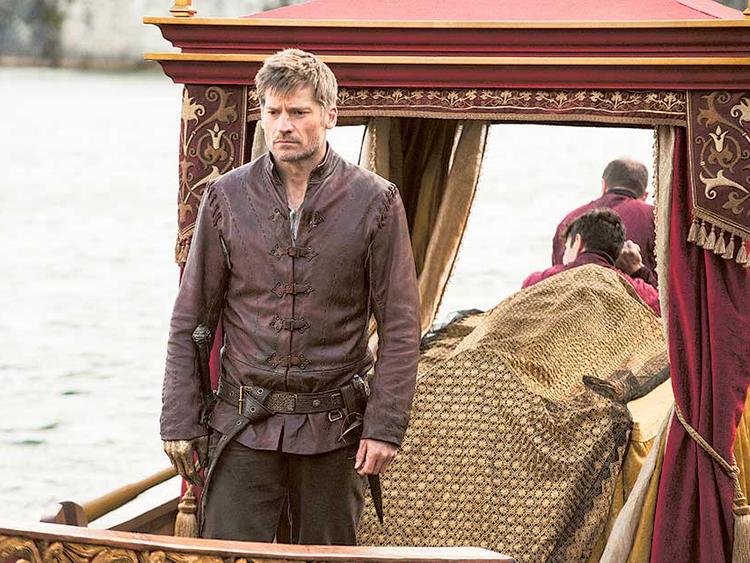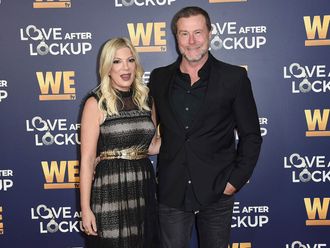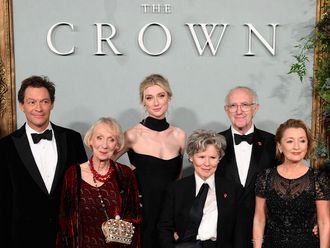
Days before Sunday’s Season 6 premiere of Game of Thrones, HBO announced that the show had been renewed for a seventh season.
As if there were any doubt. As if one of the most watched shows in the world was going to suddenly come to an end. As if its obsessive and famously restive audience hasn’t made it abundantly clear that it is in this for the long haul. That it will see the Iron Throne occupied by an actual adult, or hacked to pieces, or melted by dragon’s breath, no matter how many seasons it takes, no matter how many beloved characters must perish.
Aside from being a hugely successful franchise and award-winning drama, Game of Thrones is among the last epics of the TV renaissance vanguard. And while the frenzied intimacy and detailed analysis that accompanied the medium’s modern golden age now groans beneath weight of Peak TV, anticipation for Game of Thrones is as high as it’s ever been. Higher.
Scouring trailers, interviews and set photos for the smallest of clues — is that the Tower of Joy in flashback? Is that really Bran or is it a dream? Whose army is preparing to clash in the show’s biggest battle scene ever? — the Game of Thrones audience, like meticulous holiday planners, derive as much joy from the anticipation as they do the actual event.
For HBO, maintaining that level of engagement is the game of thrones, and every year the game advances.
Secrecy has always been the watchword of Westeros, but this season the show goes completely off-book, figuratively and literally.
After four hours of Season 5 were leaked onto BitTorrent, HBO decided to end its practice of sending DVDs for review in favour of a more secure press screening site. For Game of Thrones, however, the network closed the gates, pulled up the drawbridge and filled the moats with rusty swords.
While the fate of Jon Snow (Kit Harrington) shifted from “if” to “how,” and the show’s stars, creators and executives universally teased “the best season yet,” no episode was made available for review save the first, and that was just for journalists able to attend the April premiere party in Los Angeles.
Even without the threat of piracy, there’s good reason to avoid spoilers: This is the first season that does not directly correlate with one of George R.R. Martin’s novels; Martin is still working on the sixth book in A Song of Ice and Fire.
Never mind whatever relationship Melisandre (Carice van Houten) may have with Jon Snow’s fate. With this season, series creators David Benioff and D.B. Weiss are inventing a whole new genre of television: precognitive adaptation.
Adaptation is an odd and perilous art no matter the circumstances. Though by definition derivative (the ultimate critical pejorative), it takes enormous creativity to fit an already-told story to the singular and often shifting demands of television.
A book’s popularity will make the pitch easier but the process more fraught: Hew too closely to the original lines and be condemned as flat and fearful; stray too far and drown in cries of ruination.
Like most acclaimed adaptations, Game of Thrones has been accused of all such crimes, often for the same scene; last season’s wedding night rape of Sansa Stark (Sophie Turner) by Ramsay Bolton (Iwan Rheon) was condemned for being both unnecessarily true to, and too different from, Martin’s tale.
Now, however, the writers find themselves in a unique position: Though they have obviously consulted with Martin on key points, they are writing the television version of the story before the original is finished.
And though the season premiere delivers the power and pathos fans have come to expect, there is, in fact, a slight but still identifiable shift: Game of Thrones is, in more than a few moments, funny.
As has become tradition, Season 6 of Game of Thrones opens with desolation in which some small hope springs: Daenerys (Emilia Clarke) has been captured by the Dothraki, but her dragon is somewhere right around the corner. Arya (Maisie Williams) was struck blind but she’s still Arya, which means “survivor” in any language. Cersei (Lena Headey) has moved from shame to fury, not a good sign for her enemies, and for every dramatic separation there is, inevitably, an important reunion.
As the threat of the White Walkers becomes more immediate, the gears and alliances once again shift. But amid all the revelations and resolutions spring moments of audience laughter. Though often described by the non-devoted as “too dark,” the series has always been laced with humour — Tyrion (Peter Dinklage) is tragically wry, as is Varys (Conleth Hill); Season 4’s inextricable linking of the two created some of the best ongoing banter on television.
But in the first hour there are moments of intentional levity — a superfluous bit of inane Dothraki dialogue, a near wink of knowing intrigue in Dorne. It isn’t disruptive, just a shade different, a signature flourish perhaps amid the heavy lifting and intricate duties of the Seven Kingdoms, a flash of something new and unexpected.
What happens next — and whether the story moves backward, forward or sideways — is anyone’s guess, and as the years have proved, our joy in guessing is the show’s greatest strength. Its title and astonishing opening credits notwithstanding, Game of Thrones has never felt mechanical or preordained. Yes, there be dragons and White Walkers and, now, apparently, enormous resurrected corpses in armour, but it’s a show about people made so real that, despite their remarkable number, it’s never a chore to keep track of them.
Winter is coming, and it’s taking its sweet time, which turns out to be just fine. As John Milton, that other blind survivor, once noted: Though “Thousands at his bidding speed / And post o’er Land and Ocean without rest: / They also serve who only stand and wait.”














